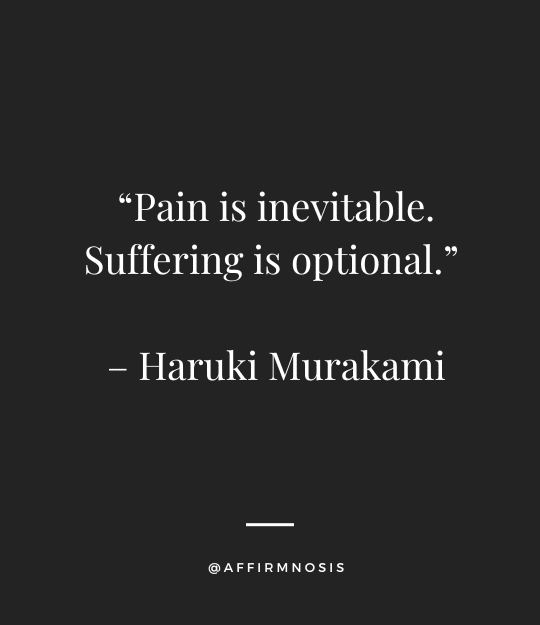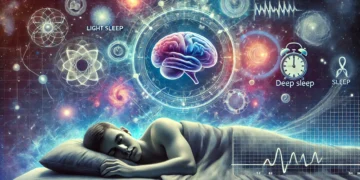Self-destructive behavior is a term that encompasses a wide range of harmful acts and habits that individuals engage in, often to cope with emotional pain or trauma. These behaviors can be physically or emotionally damaging, affecting not only the individual’s well-being but also their relationships and overall quality of life.
Self-destructive behavior can be difficult to identify and address, making it important to understand its definition, types, and negative effects.
Definition of Self-Destructive Behavior
Self-destructive behavior refers to any action or habit that harms an individual either physically or emotionally. These actions are often engaging in without consideration for the long-term consequences they may have on the person’s life.
It can involve patterns of behavior that lead to self-harm such as substance abuse, eating disorders, self-mutilation through cutting or burning one’s skin.
Types of Self-Destructive Behavior
There are several types of self-destructive behaviors including substance abuse disorders where individuals engage in excessive drug and alcohol use leading to addiction and physical harm. Eating disorders where individuals develop unhealthy eating habits such as excessive food restriction to lose weight or binge-eating disorder leading to obesity and other related health conditions.
Risky sexual behavior where individuals engage in risky sexual practices such as unprotected sex which exposes them to sexually transmitted infections (STIs) infections leading to further complications if left untreated.
Other forms include compulsive gambling which leads people into debt resulting in financial problems; self-mutilation through cutting or burning one’s skin; suicidal thoughts which may result from depression; reckless driving which endangers not only oneself but others on the road too; compulsions like hoarding which leads people into living conditions that are hazardous.

Negative Effects of Self-Destructive Behavior
The negative effects of self-destructive behavior are far-reaching, affecting not only the person engaging in them but people around them too. Often, individuals who engage in self-destructive behavior suffer from physical and mental health problems like chronic pain, depression, anxiety disorders, among others.
They may also experience social isolation and relationship challenges due to their lack of ability to form meaningful connections with others. Self-destructive behaviors have significant consequences on an individual’s life such as poor academic performance at school or work, financial problems leading to long-term debt, legal issues that can lead to incarceration and even death.
These consequences can be devastating for the person involved and those around them. Self-destructive behavior is a dangerous habit that can have severe consequences on an individual’s life.
That being said, people who engage in these behaviors should not be stigmatized or judged but rather offered support to overcome their challenges. It is essential to understand what self-destructive behavior is through its definition types and negative effects before addressing it effectively.
Causes of Self-Destructive Behavior
Self-destructive behavior can be caused by a range of factors, including psychological, environmental, and social factors. These underlying causes are complex and interconnected, making it difficult to pinpoint any single cause. However, understanding these factors can help individuals with self-destructive tendencies to identify and address the root causes of their behavior.
Psychological Factors
Individuals who engage in self-destructive behaviors often struggle with underlying psychological issues such as low self-esteem, anxiety, depression, or unresolved trauma. For instance, individuals who have experienced physical or sexual abuse in childhood may develop destructive coping mechanisms such as substance abuse or self-harm as a way to deal with the trauma.
Similarly, those who struggle with depression or anxiety may turn to harmful behaviors as a means of escaping their negative emotions.
Other psychological factors that contribute to self-destructive behavior include feelings of guilt or shame for past actions or events. Individuals may engage in destructive behaviors as a form of punishment for themselves due to this guilt or shame.
Environmental Factors
Environmental factors can also contribute significantly to the development of self-destructive behaviors. This could include growing up in an environment where substance abuse or other harmful behaviors were normalized within the family dynamic leading one down a path where they believe such actions are acceptable.
Poor socio-economic conditions can also lead people towards harmful behaviours either via lifestyle choices made out of necessity like excessive drinking which leads people down the path towards addiction & eventually more harmful behaviours
Social Factors
Social factors such as social isolation or peer pressure can also contribute significantly to an individual’s engagement in self-destructive behavior. For example, being ignored by peers at school could lead someone towards drug use which would give them an escape but ultimately lead them down dangerous paths if not addressed early on.
Additionally through peer pressure from friends or even social media influencers, individuals may engage in harmful behaviors as they seek acceptance and validation from their peers.
Social factors may also lead people towards other self-destructive behaviours such as overeating or undereating as a result of bullying and body shaming. Understanding these underlying causes of self-destructive behavior is essential to develop effective treatment plans.
It provides a foundation for accurately identifying and addressing the root causes of destructive behaviors rather than just treating symptoms. Identifying the signs early on and seeking help from professionals can make all the difference in overcoming these issues which have far-reaching consequences if left unchecked.
Common Forms of Self-Destructive Behavior
Self-destructive behavior is a broad term that encompasses various harmful actions, and four of the most common forms are substance abuse, eating disorders, risky sexual behavior, and cutting or other self-harm methods. These behaviors can cause significant physical, mental, and emotional damage to individuals who engage in them.
Substance Abuse
Substance abuse refers to the excessive use of drugs or alcohol. People may indulge in this behavior as an attempt to numb their feelings or cope with stress. However, the use of these substances can lead to addiction which has severe negative effects on a person’s health and well-being.
The long-term use of drugs or alcohol may lead to chronic health problems such as liver damage and cognitive impairment. Additionally, addiction can strain relationships with friends and family members; it can also lead to job loss and financial difficulties.
Eating Disorders
Eating disorders refer to a group of illnesses characterized by irregular eating habits that negatively affect an individual’s physical health. The three most common types of eating disorders are anorexia nervosa, bulimia nervosa, and binge-eating disorder.
Anorexia nervosa involves extreme dieting that leads to unhealthy weight loss; bulimia nervosa is characterized by binge-eating followed by purging through vomiting or laxative use; binge-eating disorder entails consuming large quantities of food within a short time frame.
These behaviors are dangerous because they can result in malnutrition which affects multiple organs in the body such as the heart, kidneys, and digestive system. They can also cause psychological distress such as anxiety about food consumption.
Risky Sexual Behavior
Risky sexual behavior involves engaging in sex without protection or with strangers or multiple partners. This type of behavior exposes people to sexually transmitted infections (STIs) like HIV/AIDS, gonorrhea, and chlamydia.
Additionally, risky sexual behavior may lead to unwanted pregnancies or emotional distress. It may also affect a person’s self-esteem, leading to feelings of shame or guilt.
Cutting and Other Forms of Self-Harm
Cutting is one of the most common forms of self-harm. People who engage in self-harm often use sharp objects such as razors or scissors to cut their skin.
Others may engage in other forms of self-harm such as burning or hitting themselves. Self-harming behavior is usually an attempt to cope with emotional pain, depression, anxiety, or stress.
However, this behavior can result in serious injuries such as infections and nerve damage. Substance abuse, eating disorders, risky sexual behavior and cutting are common forms of self-destructive behavior.
They have severe negative effects on individuals’ physical health as well as their mental well-being. However, with appropriate treatment and support from loved ones, people can overcome these behaviors and live fulfilling lives devoid of self-destructive tendencies.
The Cycle of Self-Destructive Behavior
Self-destructive behaviors are not just a one-time occurrence. They often develop into an ongoing cycle that is hard to break without intervention. This cycle usually consists of three phases: triggers and urges, immediate relief, and continued use as a coping mechanism despite negative consequences.
Triggers and Urges to Engage in Harmful Behaviors
Triggers are the events or situations that cause an individual to feel stressed, anxious, or any other negative emotion. These can be environmental factors such as financial problems or social factors such as conflicts with others.
Triggers vary from person to person but can often be rooted in past traumas or other psychological issues. Urges are the internal feelings that drive an individual towards self-destructive behavior when they encounter a trigger.
These urges can manifest as intense cravings for drugs or alcohol, compulsions to engage in risky sexual behaviors or self-harm behaviors. Urges can be very difficult to resist and often lead to immediate relief through the self-destructive behavior.
Immediate Relief Followed by Feelings of Guilt and Shame
Self-destructive behaviors may provide temporary relief from intense emotions initially experienced after encountering a trigger. However, this relief is typically short-lived, leading to feelings of guilt and shame following the behavior’s completion. The individual then experiences negative thoughts about themselves for engaging in harmful behavior.
These thoughts of guilt and shame can further exacerbate any existing mental health issues like depression, anxiety, or addictions that may have led them down this path initially. This renewed feeling of negativity reinforces triggers’ impact on an individual’s life cycle leading them back into another round of self-destructive behavior.
Continued Use as a Coping Mechanism Despite Negative Consequences
Despite recognizing the harm their actions cause themselves and those around them; individuals routinely continue to engage in self-destructive behaviors. They view these behaviors as the only means of coping with their internal and external stressors.
Unfortunately, continued use of these harmful coping mechanisms often leads to physical, emotional, and mental damage. In addition to negative physical side effects like chronic illness or addiction, individuals may feel isolated from society leading them down a path of even more negative emotions like anxiety and depression.
Breaking this cycle requires a level of self-awareness and recognition that the root causes are psychological or environmental factors. Seeking out professional help from therapists or support groups can be highly beneficial in breaking through this cycle.
Impact on Mental Health
Deterioration in mental health due to continued engagement in self-destructive behaviors
Self-destructive behaviors can have a profound impact on an individual’s mental health. Engaging in such behaviors can lead to feelings of shame, guilt, and despair, which can worsen over time.
Continued engagement in self-destructive behaviors can lead to a vicious cycle of negative emotions that further reinforce the harmful behavior. For example, someone who engages in binge drinking may experience intense feelings of regret and remorse the next day.
These feelings may drive them to drink again as a means of coping with the negative emotions. Over time, this cycle can lead to addiction and other serious mental health issues.
The role played by depression, anxiety, and other mental illnesses
Depression and anxiety are common co-occurring conditions with self-destructive behavior. The symptoms of these conditions can exacerbate the negative effects of self-destructive behavior and vice versa. Individuals with depression may turn to alcohol or drugs as a means of coping with their symptoms, which can then lead to further depressive episodes.
Similarly, individuals with anxiety may engage in risky sexual behavior as a means of seeking validation or acceptance from others. Other mental illnesses such as bipolar disorder or borderline personality disorder have also been linked to self-destructive behaviors.
These conditions often involve intense emotional dysregulation that can drive individuals towards impulsive and harmful actions. It’s essential that those struggling with mental illness seek professional help for their condition as well as any co-occurring substance abuse or self-harm issues.
Combating Mental Health Issues Related to Self-Destructive Behaviors
There are several approaches that individuals struggling with mental health issues related to self-destructive behavior can take to combat these issues:
– Seeking professional help: Whether it be through therapy or medication, seeking professional help can be an effective way to address underlying mental health issues.
– Developing healthy coping mechanisms: Finding alternative ways to cope with negative emotions can help individuals break the cycle of self-destructive behavior. This may include exercise, meditation, or engaging in hobbies and interests.
– Building a support system: Having a network of supportive friends and family members can provide crucial emotional support for individuals struggling with mental health issues related to self-destructive behavior.
– Joining a support group: Attending support groups such as Alcoholics Anonymous or Narcotics Anonymous can provide individuals with peer support and accountability as they work towards recovery.
Ultimately, overcoming self-destructive behaviors requires a multifaceted approach that addresses both the underlying mental health issues and the harmful behaviors themselves. By taking steps towards healing and recovery, individuals can improve their mental health and overall well-being.
Treatment Options for Self-Destructive Behavior
Self-destructive behavior is a complex issue that requires professional help to overcome. Treatment options depend on the severity of the behavior, personal preferences, and other factors. Here are some common treatment options for self-destructive behavior.
Cognitive-behavioral therapy (CBT)
Cognitive-behavioral therapy is a type of psychotherapy that helps individuals identify negative thought patterns and behaviors and replace them with positive ones. In CBT, individuals learn how to recognize triggers that lead to self-destructive behaviors and develop coping strategies to manage them.
CBT has been found to be effective in treating various self-destructive behaviors such as substance abuse, eating disorders, and self-harm. During CBT sessions, individuals work with a therapist to change their thought patterns and learn new skills such as problem-solving techniques.
Dialectical behavioral therapy (DBT)
Dialectical behavioral therapy is a type of cognitive-behavioral therapy that focuses on mindfulness, emotional regulation, distress tolerance, and interpersonal skills. DBT was initially developed to treat individuals with borderline personality disorder but has since been used to treat other mental health conditions.
DBT can be particularly helpful in treating self-destructive behavior because it provides skills for managing intense emotions that can trigger harmful behaviors. Individuals who engage in self-harm or other types of self-destructive behavior may benefit from learning how to regulate their emotions better through DBT.
Medication-assisted treatment (MAT)
Medication-assisted treatment involves using medication in combination with therapy to treat substance abuse disorders. MAT can be beneficial for individuals struggling with addiction by reducing withdrawal symptoms and cravings associated with drug use.
MAT may not be suitable for every individual struggling with self-destructive behavior because it primarily focuses on substance abuse treatment. However, it can be an effective component of a comprehensive treatment plan for some individuals.
Support groups
Support groups can provide a safe and supportive environment for individuals struggling with self-destructive behavior. Support groups may be led by a therapist or facilitated by peers who have experienced similar issues.
Participating in a support group can provide individuals with a space to share their experiences, receive encouragement and support from others, and learn additional coping skills. Some examples of support groups include Alcoholics Anonymous (AA), Narcotics Anonymous (NA), Overeaters Anonymous (OA), and Self-Harm Anonymous (SHA).
There are several treatment options available for individuals struggling with self-destructive behavior. These treatment options may include therapy, medication-assisted treatment, or support groups.
It is essential to find the right combination of treatment options that work best for each individual’s unique needs. Seeking professional help is the first step towards overcoming self-destructive behaviors and leading a healthier life.
Conclusion: Overcoming Self-Destructive Behaviors
The Importance of Seeking Help
Seeking help for self-destructive behaviors can be a difficult step to take, but it is an important one. The support and guidance of a mental health professional can help individuals identify the root causes of their behavior and develop healthier coping mechanisms. It is also important to seek medical attention if necessary, especially in cases where substance abuse or self-harm has caused physical harm.
The Role Played by Friends and Family
Friends and family members can play a crucial role in supporting individuals struggling with self-destructive behaviors. This support may involve providing emotional encouragement, helping to find resources for treatment, or simply being there to listen without judgment. It is important for loved ones to educate themselves about the nature of these behaviors and how they can best support their loved one during the recovery process.
How to Develop Healthy Coping Mechanisms
Developing healthy coping mechanisms is key to overcoming self-destructive behaviors. This may involve learning new skills such as mindfulness meditation or cognitive-behavioral techniques that help individuals manage their thoughts and emotions more effectively. Additionally, finding healthy ways to relieve stress such as exercise or creative outlets like writing or art can be helpful in replacing harmful behaviors.
A Positive Outlook: Overcoming Self-Destructive Behaviors
Though overcoming self-destructive behaviors may be challenging, it is possible with the right mindset, tools, and support system. The journey towards recovery may not always be linear or easy, but every small step towards healthier habits counts. With time and effort, individuals can learn to replace negative patterns with positive ones that promote their mental health and overall well-being.
Remember that seeking help is not a sign of weakness but rather an act of strength that requires courage and vulnerability. With time comes healing, and the journey towards recovery can bring newfound strength, resilience, and self-awareness.
Quotes from notable individuals on the topic of self-destructive behavior:
- “We are all damaged. We have all been hurt. We have all had to learn painful lessons. We are all recovering from some mistake, loss, betrayal, abuse, injustice or misfortune. All of life is a process of recovery that never ends.” – Bryant McGill
- “Self-destructive behavior is a daunting reality, and we must seek to understand it.” – Asa Don Brown
- “The best way out is always through.” – Robert Frost
- “The greatest weapon against stress is our ability to choose one thought over another.” – William James
- “The only real conflict you will ever have in your life won’t be with others, but with yourself.” – Shannon L. Alder
- “The curious paradox is that when I accept myself just as I am, then I can change.” – Carl Rogers
- “Pain is inevitable. Suffering is optional.” – Haruki Murakami
- “You can’t keep running from your problems. At some point, you just have to face them.” – Unknown
- “We are addicted to our thoughts. We cannot change anything if we cannot change our thinking.” – Santosh Kalwar
- “The only person you are destined to become is the person you decide to be.” – Ralph Waldo Emerson
- “Your life does not get better by chance, it gets better by change.” – Jim Rohn
- “The greatest mistake you can make in life is to continually be afraid you will make one.” – Elbert Hubbard
- “The first step toward change is awareness. The second step is acceptance.” – Nathaniel Branden
- “He who conquers himself is the mightiest warrior.” – Confucius
- “You are never too old to set another goal or to dream a new dream.” – C.S. Lewis
- “The only limit to our realization of tomorrow will be our doubts of today.” – Franklin D. Roosevelt
- “Believe you can and you’re halfway there.” – Theodore Roosevelt
- “Change your thoughts and you change your world.” – Norman Vincent Peale
- “You have power over your mind – not outside events. Realize this, and you will find strength.” – Marcus Aurelius
- “It does not matter how slowly you go as long as you do not stop.” – Confucius
These quotes emphasize self-awareness, the power of choice, and the potential for self-improvement and change in overcoming self-destructive behavior.
































































